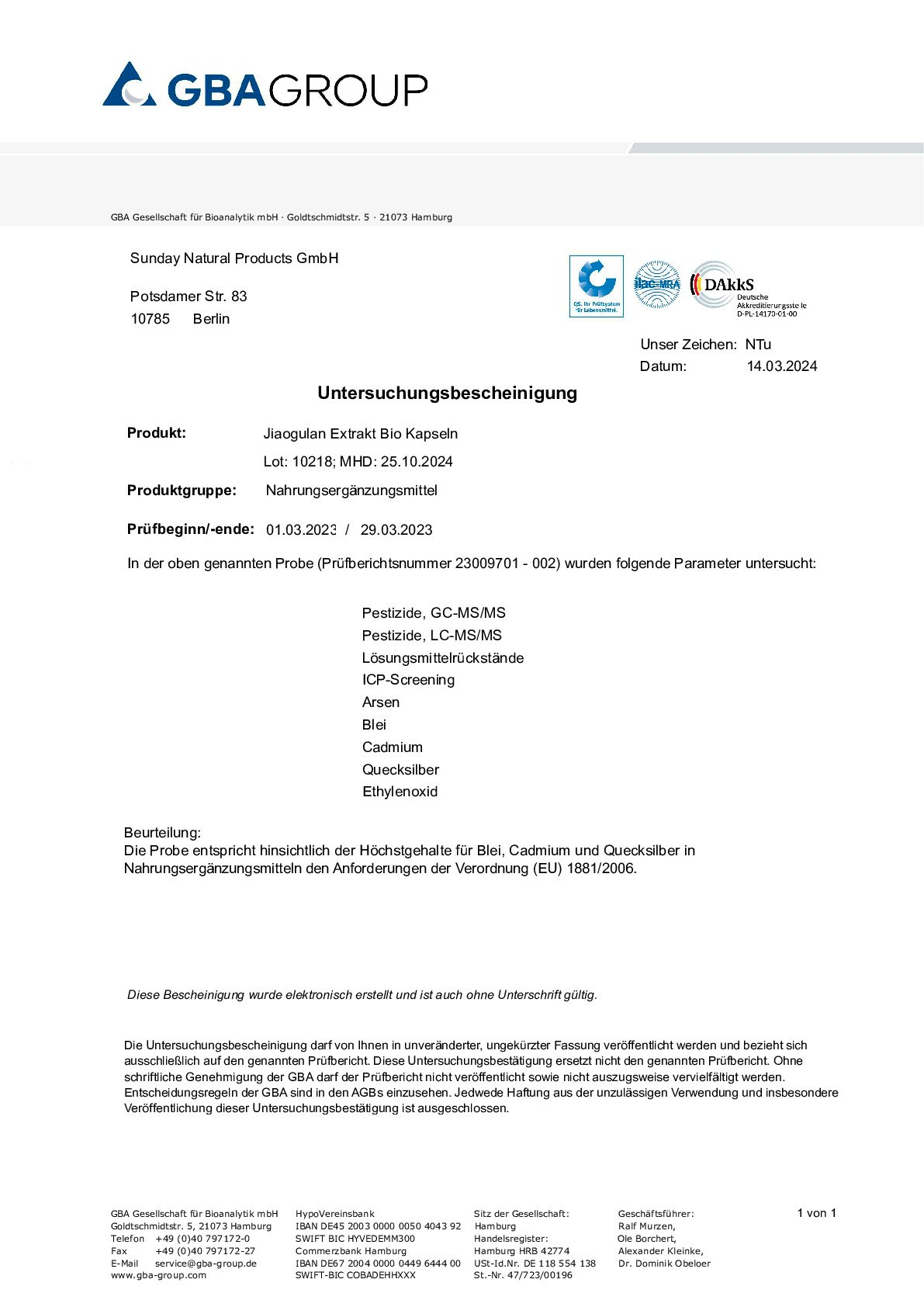Jiaogulan (Gynostemma pentaphyllum), also known as "immortality herb", originates from Asia and has been revered in Indian Ayurveda for centuries. It has also been adopted into traditional Chinese medicine (TCM). Within these cultures, the herb is a treasured revitaliser and a natural remedy for various illnesses.
The jiaogulan plants grow at an elevation of 1,000m on sunny southern-facing mountain slopes. Optimal climatic conditions including variable weather allow the jiaogulan to flourish. The plants are encouraged to mature slowly and absorb the nutrients from the humus and phosphorus-rich soil, which are needed to produce highly aromatic leaves. Jiaogulan is traditionally harvested twice per year in China: the spring harvest in April, and the autumn harvest in November.
The gently dried leaves are traditionally brewed as a tea, but can also be milled into a fine powder. Jiaogulan is a notable medicinal herb on account of its balancing character which has antioxidative properties and can support bodily processes of regeneration as well as the immune system. In addition to the many amino acids, polysaccharides, and flavonoids found inside jiaogulan, the unusually high concentration of 189 different and special saponins (gypenosides) is 4 times greater than in other comparable medicinal herbs.
Jiaogulan has an effect profile similar to other notable natural remedies such as ginseng and reishi. These medicinal plants - ranging from leaves to roots to mushrooms - can both provide energy and have a calming effect. In times of stress, jiaogulan can help bring the body back into balance in whichever way is needed. Energy, stamina, and a sense of calmness improve feelings of resilience and inner balance.




















